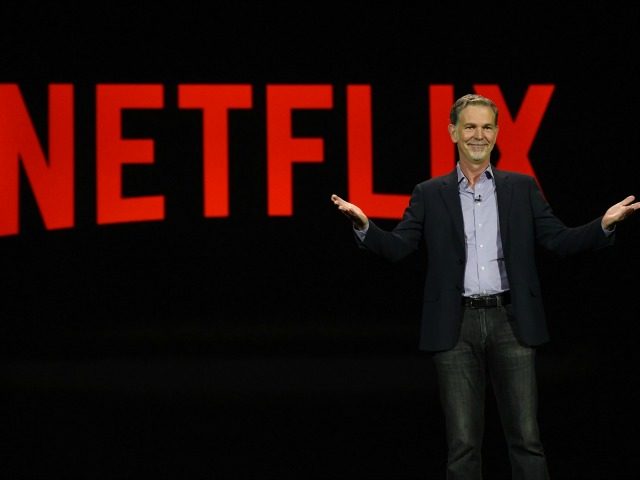Netflix is doubling down on its $20 billion in borrowing and expects to borrow more, as the company spends $6 billion to buy the kind of original content that pushed its stock valuation to $79 billion.
From $7.70 on August 3, 2012, to the company’s closing price of $184.04 on July 28, the Netflix (NASDAQ:NFLX) stock price has appreciated at the jaw-dropping compounded rate of 89 percent over the last five years.
Netflix began in 1997 as one of many online movie rental operations, but also launched a movie subscription service and the industry’s first personalized movie recommendation service, called CineMatch. After the Dot-Com bust, and with just 850,000 subscribers in 2002, the company completed an IPO at the equivalent of about $2 a share.
But Netflix pioneered movie streaming and then borrowed huge amounts of money over the last five years to be the first streamer to create its own feature content, beginning with House of Cards in 2013. Today, the company has about 104 million total subscribers.
Unlike most tech companies, Netflix has been profitable for over a decade. Two weeks ago, the company shocked analysts by beating Wall Street’s projection of 663,000 additional subscribers for the quarter, by reporting posted domestic net growth of 1.07 million subscribers and international streaming net additions of 4.14 million. The stock has jumped by about 15 percent over the last 2 weeks.
But Netflix is burning cash at the level of a developing nation. The company plans to pay for $6 billion of content this year. Yet its negative free cash-flow of $258 million for the same quarter last year, and $423 million for the quarter ending March 30, spiked to a company-record negative $608 million for the quarter ending June 30.
Having also generally kept office costs low, Netflix leased the last five floors of the prestigious 323,000-square-foot Sunset Bronson Studios in Hollywood last year.
On the company’s earnings conference call, management celebrated that they would only have negative free cash flow accelerating to between negative $2 to $2.5 billion this year. The CEO stated, “With our content strategy paying off in strong member, revenue and profit growth, we think it’s wise to continue to invest.”
Netflix claims that it can add another 50 million streaming households, despite the competing HBO service also expecting to grow rapidly. Netflix stated that “It seems our growth just expands the market. The largely exclusive nature of each service’s content means that we are not direct substitutes for each other, but rather complements.”
Netflix’s 50 original shows account for more than a third of its Internet prime-time download traffic in North America, and the company was second only to HBO this year with 91 Emmy Award nominations. But all this shockingly good performance has been powered by $20.54 billion in short and long-term debt to create more original content.
Netflix was once the pioneer, but today it faces well-funded streaming competitors like Amazon and Hulu, which are rapidly expanding their own line-ups of original programming. Recently, Google TV announced that it now has 2 million subscribers, and the company plans to create original content.
Netflix intends to expand its spending to eventually reach about 50 percent self-produced original content, but that will take more debt and cause more friction with the producers of movies that start out in theater showings before being streamed.
And as Netflix approaches the ceiling of its potential for North American subscribers, there are calls from analysts to crack down on millennials’ account-sharing.
A Reuters/Ipsos poll found that about 21 percent of 18-24-year-olds and 12 percent of adults over age 25 who stream shows like Game of Thrones or Stranger Things use somebody else’s password to avoid paying for the content. Netflix curiously says it just sees that as a way to introduce the content to a larger audience that eventually will pay.
Netflix claims that its negative free-cash flow will be cut in half over the next nine months, as revenue continues to spike. But with the stock price up 2,300 percent in the last five years, any disappointment might crimp the company’s ability to borrow, and cause a waterfall of selling.

COMMENTS
Please let us know if you're having issues with commenting.